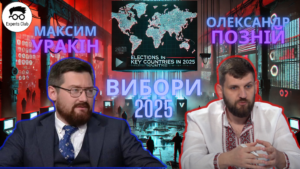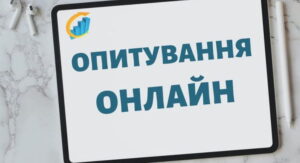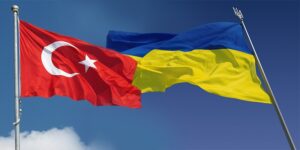
Karol Nawrocki, candidate from the Law and Justice party, has won the second round of the presidential election in Poland, according to Gazeta Wyborcza.
According to the Polish National Electoral Commission, after 100% of the votes were counted, he received 50.89%.
It is noted that his opponent, Warsaw Mayor Rafal Trzaskowski, received 49.1% of the vote.
A week before the election, Polish Prime Minister Donald Tusk called presidential candidate Nawrocki’s statement that Poland would never support Ukraine’s accession to NATO treason.
Earlier, the Experts Club think tank released a video analysis dedicated to the most important elections in the world in 2025. For more details, see here — https://youtu.be/u1NMbFCCRx0?si=6L76qeuNamxg6py1
ECONOMY, EXPERTS_CLUB, Karol Navrotsky, POLITICS, PRESIDENT OF POLAND, URAKIN

Voting in the presidential election began in Romania at 7:00 a.m. on Sunday. The second round features George Simion, representative of the right-wing Alliance for the Unity of Romanians, and Nicușor Dăncilă, the incumbent mayor of the capital Bucharest, who received the most votes in the first round on May 4.
“We voted so that only Romanians decide our future, for Romanians and for Romania,“ Simion told reporters outside a polling station.
“We decide what kind of country we want to be: a country of hope, dialogue, and development,” Dănălescu wrote on Facebook.
According to Reuters, despite the fact that 38-year-old Simion won 41% of the vote in the first round and 55-year-old Dan only 21%, opinion polls show that they have almost equal chances of winning, or show a slight advantage for Simion. Earlier, the Experts Club think tank released a video analysis dedicated to the most important elections in the world in 2025. For more details, see here —

The world is entering a phase of political change in 2025. Important elections will take place in different countries, the results of which can significantly affect both geopolitics and internal processes of states. In a new YouTube video, Maksym Urakin, founder of the Experts Club think tank, and Oleksandr Poznyi, co-founder of the Active Group research company, analyze the main political events of the year and the possible consequences for Ukraine.
After the scandalous cancellation of the presidential election results, a second vote is scheduled for December 2024 in Romania. The election brought unexpected results, and the winner of the first round campaigned exclusively on TikTok. This sparked discussions around the world, as it was the first time a social network played a key role in the political process. However, the country’s Constitutional Court canceled the election results due to the detected Russian influence, and a new vote is scheduled for May 2025.
“The situation in Romania is unprecedented, as the Constitutional Court has annulled the first round of elections. This may cause political turbulence, which will affect the country’s foreign policy,” said Maksym Urakin, founder of the Experts Club information and analytical center.
In his turn, Oleksandr Poznyi emphasized that this case proves that influence technologies are changing, and social networks such as TikTok can become a key tool for voter mobilization.
“This is a dangerous signal for Ukraine as well, because we see that political forces are beginning to use this platform as a way to manipulate public opinion,” added Pozniy.
On February 23, early elections to the Bundestag will be held after the coalition collapse in 2024. The main struggle will be between the Christian Democratic Union (CDU) and the Social Democratic Party of Germany (SPD), but the right-wing Alternative for Germany (AfD) party, which has anti-immigration and pro-Russian rhetoric, may also play an important role.
“The struggle between the CDU and the SPD will be intense. If the AfD gets second or even first place, it could change Germany’s policy towards Ukraine. So far, the mainstream parties are not ready to form a coalition with them, but their influence is growing,” Maksym Urakin believes.
The parliamentary elections in Moldova will also determine the country’s foreign policy course.
“Moldova is facing a choice between the European path and the pro-Russian vector. This choice will have a significant impact on regional policy. The elections will decide whether the country will continue its European course under the leadership of President Maia Sandu or whether the Socialists, represented by Igor Dodon, will be able to regain power,” said Poznyi.
He also emphasized that Moldova is a parliamentary republic, and even if Sandu wins the presidential election, it does not guarantee that her political force will retain a majority.
On May 18, Poles will elect a new president, as Andrzej Duda cannot run for a third time. Experts believe that this is one of the most important elections for Ukraine, as Polish support is strategic. The tense confrontation between Law and Justice and the opposition will determine the future of Polish-Ukrainian relations. The Ukrainian issue will play an important role, but voters are more focused on domestic issues, such as the situation with Polish farmers who are unhappy with Ukrainian grain imports.
“Candidates will have to maneuver between supporting Ukraine and protecting national interests,” says Mr. Poznyi.
Serbia is one of the few countries in Europe that continues to balance between the EU and Russia. President Aleksandar Vucic has twice hinted at the possibility of early elections in 2025, especially amid protests and the escalating situation in Kosovo.
In October, elections will also be held in Canada and Argentina, which could change the foreign policy courses of these countries. On September 8, Norway will vote, and on November 16, Chile will vote.
“The elections in Canada are important for Ukraine, as further assistance will depend on them. It is also worth following the processes in Norway, which supports European security,” summarizes Maksym Urakin.
The year 2025 promises to be full of important political events that could change the international agenda. Ukraine must take into account the possible consequences of elections in strategic countries and prepare for new challenges on the global stage.
For more details about the elections to be held this year, please watch the video:
Subscribe to the Experts Club channel here:
https://www.youtube.com/@ExpertsClub

The survey, conducted by Active Group in cooperation with the Experts Club think tank, revealed citizens’ attitudes to various aspects of social and economic life in Ukraine, including the initiative to refund part of the cost of Ukrainian goods, the government’s influence on business, the level of trust in law enforcement, financial stability of citizens, and forecasts for the hryvnia exchange rate.
A significant proportion of respondents (44%) have heard of the initiative to refund the cost of purchasing Ukrainian goods, with opinions divided on its impact on living standards. Most respondents believe that the government will increase taxes to finance this initiative.
According to Andriy Yeremenko, founder of the sociological research company Active Group, this raises concerns among the population, as most are not ready for an increase in the fiscal burden.
The study also revealed a deep distrust of government institutions (57% of citizens) and law enforcement agencies (62%) in the context of relations with business, in particular due to the lack of transparency and efficiency of their work. The majority of respondents believe that the state hinders rather than helps business to develop, and this trend has increased compared to previous months.
A significant number of Ukrainians (up to 60%) are experiencing financial difficulties, including increased debt and lack of savings for a rainy day. Respondents also expressed concern about the future of the hryvnia exchange rate, with the majority (55%) expecting it to fall.
In the context of utility bills, the vast majority (67%) of respondents believe that the level of tariffs is too high, which further emphasizes the general dissatisfaction with the financial situation and government policy in this area.
According to Oleksandr Poznyi, Director of Active Group, these results demonstrate the serious challenges faced by Ukrainian society in the context of the war and the current economic situation.
Earlier, Maksym Urakin, the founder of the Experts Club think tank, noted that in 2024 Ukraine’s public debt may exceed GDP for the first time, which poses significant risks to economic stability in the country.
For more details, please see the video at the link:
https://www.youtube.com/watch?v=8hkvHhyzGLQ
You can subscribe to the Experts Club channel here:
ACTIVE_GROUP, ANDRIY_EREMENKO, ECONOMY, EXPERTS_CLUB, OLEXANDR_POZNYI, POLITICS, SOCIOLOGY, TAXES, URAKIN

Japan is urgently prepared to provide support to Ukraine with a loan of at least $100 million as a sign of support for it in the conditions of the buildup of Russian troops on the Ukrainian border, the Ministry of Foreign Affairs of Japan said following a telephone conversation between Japanese Prime Minister Fumio Kishida and Ukrainian President Volodymyr Zelensky.
“Prime Minister Kishida informed that Japan is urgently prepared to provide support with a loan of at least $100 million based on the request of the Ukrainian side, and President Zelensky expressed deep gratitude for this,” the Japanese Foreign Ministry said in a report on the website after the February 15 conversation.
Japan has been paying close attention to the move to strengthen Russian troops around the Ukrainian border. Japan has consistently supported Ukraine’s sovereignty and territorial integrity, the Ministry of Foreign Affairs of Japan said.
“The two leaders agreed to work together to ease tensions through diplomatic efforts,” the ministry said in the statement.

Ukraine and Turkey will reach an agreement on signing an agreement on a free trade area (FTA) in the next two days, President Volodymyr Zelensky has said.
“We are getting ready to give a powerful economic signal, to sign an FTA agreement with Turkey already within these two days. Our groups are working. I am sure that we will agree,” he said, speaking at the Verkhovna Rada on Tuesday.